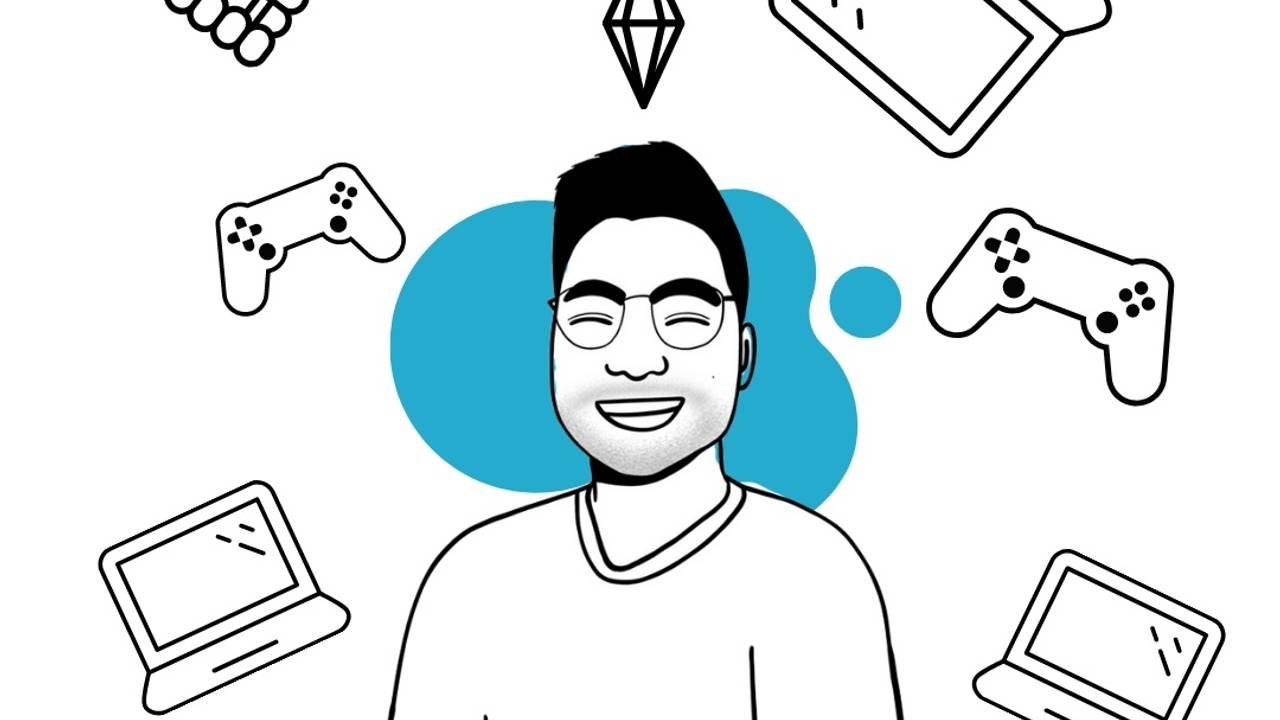Experience Designer Alister Lee Promotes Self-Expression in Gaming During the COVID-19 Pandemic
Apr 19, 2021
Video games continue to be a beacon of escapism during the COVID-19 pandemic, inviting people from all walks of life to delve into a world far different from their own. Because of people like Alister Lee, an experience designer for Sims 4, gamers can create alternate realities right from the comfort of their homes. As an experience designer, he implements his design skills to create unique and innovative experiences for players, spanning from fixing inventory management systems, to finding new ways to kill off characters.
Like many of us, Lee works from home, a transition that was easier for him than most since he works in tech as a game designer for EA Arts. One year into the pandemic, he’s still working from home as he and his coworkers wait for the company to establish a plan to bring them back safely into its offices.
“What’s great is that EA has been so accepting of people working from home, like most tech companies,” Lee said. “I think working from home can be really successful and helpful, especially with things like mental health.”
Lee has been researching ways for Sims 4 to adapt to today’s social climate, exploring ways to incorporate more forms of diversity in response to the Black Lives Matter movement and the recent spike in anti-Asian sentiment and violence across the US.
He and his team work with diversity teams and employee research groups for communities such as Asian/Pacific Islanders and Pride to learn about different cultures and implement features and scenarios that are accurate and respectful.
“The shift has been focused on inclusion,” he said. “We’re starting to look into what that means for gaming, specifically. Our eyes are open because of the raised awareness, so we’re trying to have more diversity. We ask ourselves, ‘How can we give people from diverse cultures and backgrounds a voice?’”
The game has incorporated more skin tones and hairstyles as a part of this initiative, a difficult challenge given Sims 4 is several years old. Lee believes that it’s essential to include physical features that are familiar to everyone, as it allows individuals to see themselves represented.
He feels that the increased representation in the game helps players tell their own stories. One Twitter user shared that she could not deal with her grandmother’s death and used Sims 4 to express her grief. The game also provides ways for families to explore the world without traveling--many have used it to go on virtual theme park trips.
“What Sims is amazing at is allowing players to do whatever they want and tell the stories they want without any judgment,” he said.
While Lee and his team are making great strides towards diversity, there are still many social issues that linger in the gaming community, such as flaming and hate speech. Some steps major video game companies are taking to prevent toxicity are banning players, changing derogatory terms in chats to positive sayings, and muting voice chats. Most games that implement these features are competitive online multiplayer games like League of Legends and Call of Duty.
As an experience designer and gamer, Lee recommends using platforms like Discord, a cross-platform communications channel that lets people create invite-only voice and text chat groups to support better mental health and digital wellness. Discord has become a safe space and accessible social platform for those afraid of speaking in games or for anyone who wants to block negativity.
“If you surround yourself with a healthy supportive friend group, you’ll never be within toxicity’s reach,” he said. “It’s on the player and their environment. Competitive games have a system of winners and losers. If you lose, you want to get better. If you win, you want to keep playing to keep feeling good. I like the game Teamfight Tactics because you still get rewarded for losing. There’s more reward in losing, but the idea of losing is much bigger than receiving a reward.”
Digital wellness is still a pretty foreign topic in the gaming world right now, but Lee keeps his focus on inclusion at the forefront of his work. This effort is also personal as he navigates the gaming industry as a gay Asian man. He finds that exploring identity through diversity features in Sims 4 can inspire players to be who they want to be and express themselves.
“It’s easy to forget about what experiences others have,” he said. “DEI researchers are so important because they challenge us to take a deeper look at inclusivity, helping us include broader audiences. In games, we create pop culture. We create communities where people meet and become friends in the games—there are even Sims influencers! It’s attractive because they are all exploring their lives.”
Game designers like Lee make it possible to bridge the gap between the video gaming world and digital wellness practices, serving as a reminder that even in the most competitive online communities, people deserve positivity and kindness.
Stay connected with news and updates!
Join our mailing list to receive the latest news and updates from our team.
Don't worry, your information will not be shared.
We hate SPAM. We will never sell your information, for any reason.


